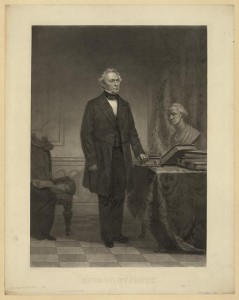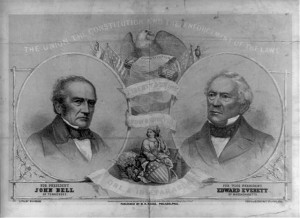A laconic Edward Everett?
From the Richmond Daily Dispatch November 1, 1862:
Edward Everett.
–Edward Everett having been requested to accept the Republican nomination in the Third Congressional District of Massachusetts, has replied in the following letter:
“Summer Street, Oct. 9, 1862.”
“My Dear Mr. Whiting:”
“I fear you will think I have too long delayed an answer to your most obliging communication. After giving to the subject the most anxious and respectful consideration, I have come to the conclusion that I can best serve the country and its holy cause by not going into Congress. I shall continue, to the best of my ability, to support the President, and to do everything in my power to promote the vigorous prosecution of the war. But I feel confident that what little influence I might otherwise have would be impaired by my becoming a candidate, especially at a moment when we are threatened with a new struggle of parties, from which I am determined to stand aloof.”
“I remain, my dear Mr. Whiting, with great regard sincerely yours,”
“Edward Everett.”
Politician, diplomat, professor, president of Harvard (1846-49), and famous orator, Edward Everett was strongly pro-Union, and after the war broke out, “He devoted his efforts to raising support for the Union cause through public speaking.” He had been John Bell’s running mate on the Constitutional Union Party ticket in 1860.


